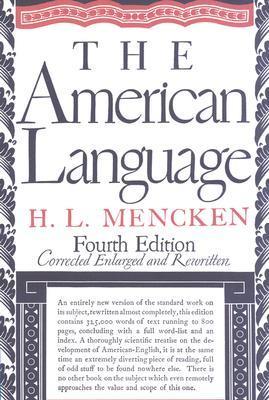What do you think?
Rate this book


816 pages, Hardcover
First published January 1, 1919
"There is no authority which can enforce the recognition of a Standard English that does not exist, save in the imagination of a few people in London. When these people write or speak they betray their place of origin as definitely as a native of New York or Edinburgh, Their assumption that, while the latter are strange and provincial, they are standard and authoritative, is merely an illustration of self-complacent provincialism, It is an assumption which the great English speaking world does not and cannot admit."- Ernest Boyd
"If the Anglicization of the world is good, why is the Americanization of England bad?"
"This insistence that Americans are not, in any cultural sense, nor even in any plausible statistical sense, Anglo-Saxons is to be found in many English fulminations upon the subject."
"Several circumstances render a future separation of the American from the English necessary and unavoidable... numerous local causes, such as a new country, new Associations of people, new combinations of ideas in Arts and Sciences, and some intercourse with tribes wholly unknown in Europe, will introduce new words into the American tongue. These causes will produce, in a course of time, a language in North America as different from the future language of England as the modern Dutch, Danish and Swedish are from the German, or from one another: like remote branches of a tree springing from the same stock, or rays of light shot same center, and diverging from each other in proportion to their distance from the point of separation..." - John Adams
"It offends them [the English], " he said, "that we are not thoroughly ashamed of ourselves for not being like them."
"The British will learn every language, living and dead, but American English."
"Hollywood gradually conquered the English cinema palaces..."
"After the war of 1812, after the Civil War, and again after the world war there were deliberate efforts, among the Literati as well as among the folk, to throw off English precept and example all together, and among the authors concerned were such respectable figures as J. Fenimore Cooper, Walt Whitman, Mark Twain, and Sinclair Lewis."